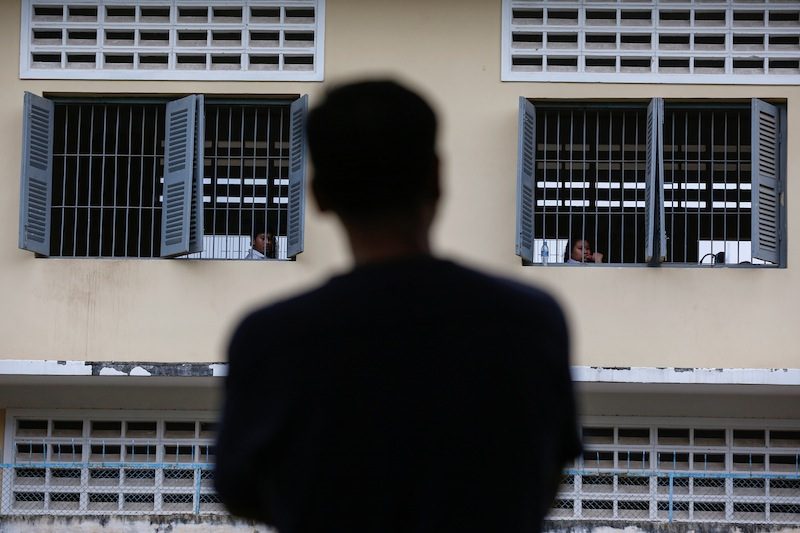As the third year of strictly regulated national high school exams drew to a close on Tuesday, the Ministry of Education brushed off evidence of widespread attempts at cheating and declared the event a success.
In 2014, the ministry implemented sweeping reforms to eliminate rampant bribery and cheating at the annual exam, which determines students’ eligibility for university.

The ministry threatened to expel students from the test and give them a grade of zero if they were caught with mobile phones or cheat sheets.
Photographs posted on Facebook over the past two days, however, showed the confiscation of innumerable sleeves, flip-flops, eraser cases and papers covered in test answers—but no expulsions. And asked if any of the 93,752 registered students had been caught cheating on Tuesday, Education Ministry spokesman Ros Salin said: “No.”
The anti-cheating reforms have contributed to a deep drop in pass rates—from about 80 percent in 2013 to 41 percent in 2014 and 56 percent last year. But they have not halted attempts at cheating.
This year, two students were found with cheat sheets inside the exam room before the test began and one turned in a mobile phone he had snuck past guards. The three were given a “special record” that would be reflected on their grades, Mr. Salin said on Monday, as they had not begun writing the exam when they were caught.
Speaking to a reporter ahead of the exam’s start on Monday morning, Education Minister Hang Chuon Naron, who has overseen the reforms, said the stricter conditions would ultimately help the students.
“They should not be victims of reform,” he said. “They should benefit in terms of opportunities, jobs and knowledge. If it is successful, then we can say we can compete regionally and they can have a lifetime of learning.”
But standing outside of Chea Sim Boeung Keng Kang High School in Phnom Penh, a 54-year-old police officer—whose 18-year- old son was sitting the exam—said the lack of action against cheaters was a disappointment.
“It’s not fair because it’s the third year of reforms. It’s like we’re still encouraging ignorance,” he said, declining to provide his name for fear of losing his job.
Last year, one student was banned from the test for two years after his younger brother was caught impersonating him, and another was caught using a mobile phone. The year before, 20 people were caught cheating, including three impersonators who were supposed to face legal charges under the new rules but did not.
“I’m very happy because of the reform,” Karng Polan, 18, said after completing the exam on Tuesday. “If we could bring cheat sheets, we wouldn’t want to try and wouldn’t feel the urge to study.”
Exam results are to be released on September 13 in Phnom Penh and Kandal province and in the rest of the country the following day.




